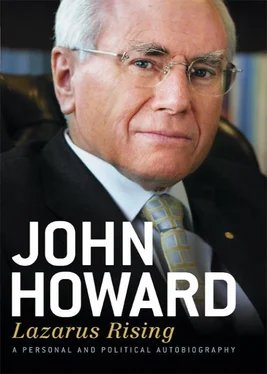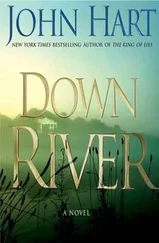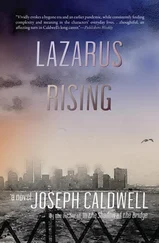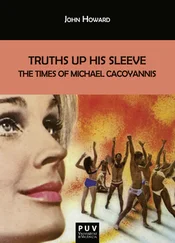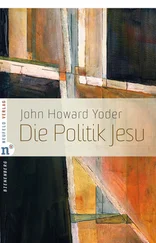Janette and I indulged in some desultory house hunting, feeling that much as we liked our unit, we should have a house for our children to grow up in. Nine months later we bought a Federation-era house in a nearby street in Wollstonecraft. It needed a lot of work, but was by far the best investment we ever made. It was renovated and extended through the years, with a whole storey being added in the early 1980s. It was the house in which our children were raised; it remained vacant for almost 12 years whilst I was Prime Minister, and it was the home to which Janette and I returned after the election loss in November 2007. Incredibly, by the time we bought the house, in October 1974, I had already been a member of parliament for five months.
Despite Whitlam winning government in 1972, the Coalition, the DLP and independents controlled the Senate. As a result, many of the Whitlam Government’s initiatives in sensitive areas were blocked by the Senate. There were constant allegations that the Coalition was behaving in a negative fashion, although most of those who made those allegations ignored the frequent declarations made by both Gough Whitlam and Lionel Murphy, in earlier years, that it was the role of the Senate to oppose government legislation with which it disagreed.
Despite being aware, from closely following events in Canberra, that a lot of government legislation had been blocked, it came as a surprise to me when the opposition threatened to block supply in April 1974.
The catalyst had been Whitlam’s appointment of the DLP senator and former Queensland Premier Vince Gair as Australian Ambassador to Ireland. This appointment was designed to ensure there would be a sixth Senate vacancy from Queensland in the half-Senate election which Whitlam had called for 18 May 1974. If six vacancies were being filled from Queensland, there was a chance that the ALP could win control of the Senate. But Whitlam would be outsmarted in this ploy by the Premier of Queensland, Joh Bjelke-Petersen, who advised the Queensland Governor to issue the writs for the five Senate vacancies from that state normally up for election, separately from the vacancy caused by Gair’s appointment to Ireland. This meant that the Gair vacancy would be treated as a casual one; under the Constitution, casual Senate vacancies are filled by state parliaments.
There was plenty of Coalition outrage over the Gair Affair, and a lot of Liberal supporters wanted an early poll, but in the broader community, although there was growing disillusionment with the Whitlam Government, there was still a fundamental sense that the Government should be given a fair go. After all, Vince Gair had not been the first politically expedient diplomatic appointment. To my mind, the most reprehensible feature of the whole affair was Gair’s betrayal of his own party, the DLP, by doing the political bidding of the ALP for personal advancement. He was deservedly expelled from the DLP. It was the beginning of the end for the party. Its remaining senators would lose their seats in the coming election.
Whitlam responded to the Coalition threat by seeking and obtaining from the Governor-General, Sir Paul Hasluck, a double dissolution based on previous Senate rejection of several government bills. The election was to be on the same date, 18 May, originally chosen for a quiet half-Senate poll. In a double dissolution election, every Senate seat is vacant, so the original shenanigans about the Gair vacancy became academic.
Personally, I was pleased at the prospect of an early election. Within the space of a week, I went from being an endorsed Liberal candidate for an election still at least 18 months away to being someone who should start campaigning immediately. At long last I could get my teeth into the real business of winning a seat in parliament.
Naturally I campaigned entirely in Bennelong. My campaign was opened at St Mark’s Anglican Church hall in Hunters Hill by Andrew Peacock, shadow minister for Foreign Affairs. He was destined in the years ahead to play a major role in my political life. The local campaign attracted plenty of helpers.
Local branches of the ALP voted to install the left-wing legal activist Jim Staples as their Bennelong candidate. The Labor Party head office, however, would not have a bar of Staples, so they imposed the writer, and Whitlam confidant, Richard Hall as the ALP candidate.
Although I had nervous moments, particularly on the night of the election before the first results came in, deep down I expected to win Bennelong. I was far from sure, however, about the overall result. Whitlam campaigned extremely well, and was able to exploit the claim that his government had not been given a fair go. On the face of it this was a good argument. There had been a Coalition Government for 23 years, yet after less than 18 months the newly elected Labor Government had been forced to go back to the people by the non-Labor majority in the Senate.
One of the problems the Coalition had was that it had not really completed serious policy work when the election was called. This made it easier for Whitlam to claim that we were not ready for government. Much play was made of an intensive policy weekend which produced the Coalition’s manifesto ‘The Way Ahead'. Policy written in the pressure cooker of a weekend, in the shadow of an election which has already been called, is unlikely to be well thought through.
For my campaign we had established an office in Lane Cove Plaza. Although she was five months pregnant, Janette worked very hard and thoroughly enjoyed the campaign. She is a meticulous organiser and kept me and many others up to the mark with campaign tasks. I treated it as a marginal seat campaign.
Bennelong had scores of active community groups, particularly in areas of nature conservation. It also had, in 1974, an active Women’s Electoral Lobby, which played a particularly prominent role in the campaign with candidates’ forums, questionnaires and the like. The convener of the Bennelong WEL was Janelle Kidman, mother of Nicole. She, her husband, Antony, and children lived in the electorate at Longueville. They were strong Labor supporters.
They were cordial to me but I had no doubt that the majority of WEL’s members were sympathetic to Labor’s social agenda. The main WEL meeting was held at the Lane Cove Town Hall, attended by hundreds of people. I was asked my opinion about abortion; not surprisingly my rather conservative response caused an audible intake of breath from most of those in the audience. I hadn’t tried to sugar-coat the reply; that wins no one’s respect. On sensitive social issues it is always desirable to be direct and clear.
On polling day, 18 May 1974, it rained heavily all day, and must have been a nightmare for the booth workers. There were a record number of candidates for the Senate, and as a consequence the large how-to-vote papers became very sodden and cumbersome. It was a long day as I worked my way around each of the 34 polling booths in the electorate.
I went home to our unit in Wollstonecraft for dinner at 7 pm. I didn’t eat a lot, as I was very nervous. Janette’s parents came over for dinner and drove up to the campaign office with us. I had arranged for my mother to come to the office with one of my brothers. Wal and Stan had worked on polling booths during the day. We all waited in the campaign rooms, the arrangement being that as soon as a booth count had been completed, a scrutineer would ring through the result.
The first result was rung through at about 8.38 pm, and it was from the Congregational hall in Lane Cove. They were good figures, showing a lift in the Liberal vote of about 6 per cent. Figures then came in rapidly, and it became very apparent that not only had I won, but I had increased the majority won by Cramer in 1972. I had no reason to get delusions of grandeur, but it had been a good outcome. Nonetheless, Bennelong was not as blue-ribbon as Bradfield or North Sydney. The two-party-preferred Liberal vote was only 53–54 per cent. I would need to work hard. Having, at the age of 34, achieved my longstanding ambition to be a member of the national parliament, I had every intention of doing just that.
Читать дальше
